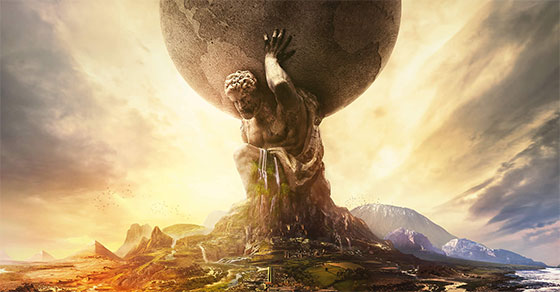Sid Meier is one of the few game developers left today whose name is included in the title of almost every game he makes. 2K Games and Firaxis have launched Civilization VI in tandem with the celebration of 25 successful years for the strategy franchise that has combined Meier’s own love of history with strategic gameplay and has kept players coming back for more.
Meier, who has been developing games since 1982, has seen many changes in the industry. Today, even his son, Ryan, works at Firaxis as a designer and programmer. We caught up with the game industry legend in this exclusive interview.

What are your thoughts are about the fact that so many people are watching games on Twitch or YouTube more than they’re playing games themselves?
Yeah, that kind of destroys my whole theory about why games are fun. It was amazing to me to watch StarCraft players, for example, and see these amazing experts who got everything figured out; every hot button and every keystroke optimized, and people watching that. What I eventually realized is that they believe that that world is interesting and they’ve had a lot of experiences in the StarCraft world. So it’s meaningful to them to see how an expert player would play.
I always thought games were interactive, you were the star, and you were creating the story, but I guess it’s become so much a part of our culture and our set of experiences that it’s interesting to see how someone else would go through that same game and you can learn from that.
You mentioned StarCraft, which has been an eSport for years. What are your thoughts just on the fact that video games today are considered a sport?
I’m skeptical. I guess it depends on your definition of sports. It used to be fresh that air was involved in sports and actual motion of all of your body parts, but it’s probably a good example of how technology is becoming more and more an integral part of our lives. I would call it e-skills. I’d be more comfortable looking at it that way that there are people who have these incredible video game skills, and to watch them play is really entertaining and enlightening. I think you can probably have a fruitful discussion about whether it’s a sport or not.
You’ve been around long enough to have seen previous iterations of VR, but what do you think about the current VR landscape with Oculus Rift, HTC Vive and PlayStation VR?
It’s more different than any other new technology that’s come around for a long time, in ways that are good and also challenging. The immersiveness of the experience is incredible. That comes with a few side effects that are cautionary, and we’re going to have to change our way of thinking about games to a certain extent to really leverage what’s special about VR. I think that will happen. Game designers are smart people, and they’ll figure things out, but it’s a fairly revolutionary kind of technology. I think it will kind of exist in a parallel path with regular computer and video games, as opposed to being tacked on. VR games will be a fairly special separate subcategory of games. And we’re in the very, very early stages of exploring what the possibilities are. The killer app, as we used to say, for VR hasn’t been created yet. It’s something that probably will be coming along and we’ll say, “A-ha, that’s how it’s going to work. Okay, we get it now.”
How have you seen the Civilization franchise evolve over the last 25 years?
We’ve really been responding to the community. They let us know what works, what doesn’t, and what they want to see. That’s what really has kept Civ alive and vibrant and new; that dialogue that we have with the community out there. They’re making mods and they’re on forums. They’re sending us information. We now have telemetry to tell what things are going out there and connecting. We’re gamers ourselves, and we can identify with the mindset of the players that are playing our game. And that allows us to stay current and it allows us to anticipate, in a lot of cases, what they’re going to want. That’s really the key to the longevity of Civ: respecting the community of players that are playing the game.
How has that community become a part of Firaxis over the years?
A lot of our designers have come from that community. When you look back through all the designers of the past games, from Soren Johnson to Jon Shafer, they came from the community. Shafer was an intern and he was a huge fan. He used to do modding for Civilization IV. A lot of these great new concepts for where we could take the franchise came from people who had grown up with the game. That’s really been effective with constantly injecting these new grand concepts into each title as new designers have come on board.

